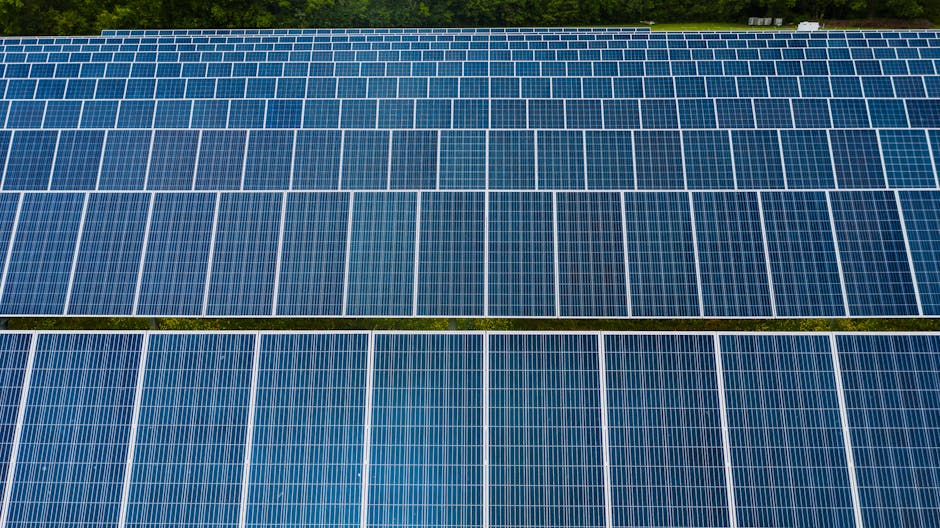PERSPEKTIF eps. 131: Greed as the Root of Planetary Destruction

PERSPEKTIF eps. 131: Greed as the Root of Planetary Destruction
We've all heard it: the planet is in trouble. The ice caps are melting, extreme weather events are becoming more frequent, and biodiversity is plummeting faster than a politician's approval rating after a scandal. But while the symptoms are clear, the root cause often gets muddied in a swamp of complex data and scientific jargon. This week, on PERSPEKTIF episode 131, we're diving headfirst into what we believe is a primary driver behind this ecological unraveling: greed. Not the cutesy, Gordon Gekko "greed is good" kind, but the systemic, deeply ingrained greed that fuels unsustainable consumption and prioritizes short-term profits over long-term planetary health.
The Unsustainable Equation: Consumption, Production, and Greed

Let's be blunt: our current economic system is predicated on continuous growth. Companies need to show increased profits quarter after quarter, leading to a relentless pursuit of expansion. This, in turn, demands increased production and, consequently, increased consumption. But here's the catch: the Earth's resources are finite. We're essentially trying to squeeze an infinite amount of juice out of a finite orange. And who's squeezing the hardest? You guessed it: the greediest among us.
It's not just about individual acts of wastefulness (though those certainly contribute). It's about a system that encourages, even rewards, overconsumption and disregards the environmental consequences. Think fast fashion, planned obsolescence in technology, and the endless barrage of marketing designed to convince us we need things we don't. This cycle is driven by the insatiable desire for profit, often at the expense of our planet's well-being.
Consider the following scenario: A company knowingly pollutes a river to save on production costs. They increase their profits, shareholders are happy, and executives get bonuses. But the local community suffers, the ecosystem is damaged, and future generations inherit a degraded environment. The immediate financial gain is prioritized over the long-term ecological and social costs. This is greed in action.
Beyond Individual Blame: Systemic Greed and the Role of Corporations

While we can all make individual choices to reduce our environmental impact (recycling, reducing meat consumption, etc.), it's crucial to acknowledge that the real power lies with corporations and governments. Shifting the blame solely onto individuals lets the big players off the hook. After all, one person switching to bamboo toothbrushes isn't going to offset the carbon emissions of a coal-fired power plant.
The pursuit of profit maximization often leads corporations to:
- Externalize costs: Shifting the environmental and social costs of their operations onto society as a whole. This includes pollution, resource depletion, and the displacement of communities.
- Lobby against environmental regulations: Spending vast sums of money to influence policy decisions in their favor, often hindering efforts to address climate change and protect natural resources.
- Engage in greenwashing: Making misleading or unsubstantiated claims about the environmental benefits of their products or practices to improve their public image and attract environmentally conscious consumers.
These actions, driven by a desire to maximize profits regardless of the consequences, are a clear manifestation of systemic greed. They perpetuate a cycle of environmental destruction and undermine efforts to create a more sustainable future.
The Innovation Paradox: Can Technology Save Us From Ourselves?

Many optimists believe that technology holds the key to solving our environmental problems. From renewable energy sources to carbon capture technologies, there's a growing array of innovations that promise to mitigate the effects of climate change and promote sustainable practices. But here's the paradox: even the most groundbreaking technologies can be co-opted by greed.
Think about it: a company develops a revolutionary solar panel that's more efficient and cheaper to produce than existing models. Great! But what if they use unethical labor practices in their manufacturing process? Or what if they lobby to prevent regulations that would encourage widespread adoption of solar energy because it would threaten their existing fossil fuel investments?
Innovation alone isn't enough. We need to ensure that new technologies are deployed responsibly and ethically, with the goal of benefiting society as a whole, not just a select few. We need to create a system that incentivizes sustainable innovation and discourages the exploitation of technology for purely self-serving purposes.
Re-evaluating Success: Beyond GDP and Profit Margins

If greed is the problem, what's the solution? It's not simply about becoming less greedy as individuals (though that certainly wouldn't hurt). It's about fundamentally changing the way we measure success. For too long, we've equated progress with GDP growth and profit margins. But these metrics fail to capture the true costs of our actions, particularly the environmental and social consequences.
We need to develop new indicators that reflect a more holistic view of well-being. These indicators should consider factors such as:
- Environmental quality: Measuring air and water quality, biodiversity, and resource depletion.
- Social equity: Assessing income inequality, access to healthcare and education, and social cohesion.
- Human well-being: Evaluating happiness, life satisfaction, and mental health.
By shifting our focus from purely economic indicators to a broader range of measures, we can create a system that incentivizes sustainable practices and promotes a more equitable and fulfilling society.
Practical Steps: From Awareness to Action

So, what can we do? While systemic change requires collective action, individual actions can contribute to a broader shift in values and behaviors. Here are a few practical steps we can take:
- Educate ourselves: Learn about the environmental and social impacts of our consumption habits. Read books, watch documentaries, and follow reputable news sources that cover sustainability issues.
- Support sustainable businesses: Choose to buy products and services from companies that are committed to environmental and social responsibility. Look for certifications like B Corp, Fair Trade, and organic.
- Reduce our consumption: Question our need for new things. Buy less, reuse more, and repair what we have. Embrace minimalism and declutter our lives.
- Advocate for change: Contact our elected officials and urge them to support policies that promote sustainability and hold corporations accountable for their environmental impact.
- Invest in sustainable investments: Divest from fossil fuels and invest in companies that are working to create a more sustainable future.
These steps, while seemingly small, can have a significant impact when multiplied across millions of people. They can help to create a demand for sustainable products and services, pressure corporations to adopt more responsible practices, and influence policy decisions.
The Power of Collective Action: Building a Sustainable Future Together

Ultimately, addressing the environmental crisis requires a collective effort. We need to work together – individuals, businesses, governments, and civil society organizations – to create a more sustainable future. This means:
- Holding corporations accountable: Demanding transparency and accountability from corporations for their environmental and social impacts.
- Strengthening environmental regulations: Enacting and enforcing stronger environmental regulations to protect natural resources and prevent pollution.
- Investing in renewable energy: Accelerating the transition to renewable energy sources to reduce our reliance on fossil fuels.
- Promoting sustainable agriculture: Supporting sustainable farming practices that protect soil health, reduce water consumption, and minimize the use of pesticides and fertilizers.
- Empowering local communities: Supporting local communities in their efforts to protect their environment and promote sustainable development.
The journey towards a sustainable future won't be easy. It will require difficult choices and significant sacrifices. But if we're willing to confront the root cause of our environmental problems – greed – and embrace a more sustainable way of living, we can create a planet that is healthy, vibrant, and thriving for generations to come. Let's start today.
PERSPEKTIF eps. 131 is a call to action. It's a reminder that we all have a role to play in shaping the future of our planet. Let's choose to be part of the solution, not part of the problem. Let's choose sustainability over greed.
Further Exploration: Resources and Organizations to Learn More

Want to delve deeper into the topic? Here are some resources and organizations worth checking out:
- The Ellen MacArthur Foundation: A global thought leader on the circular economy.
- B Lab: Certifies B Corporations, businesses meeting high standards of verified social and environmental performance, public transparency, and legal accountability to balance profit and purpose.
- The World Resources Institute (WRI): A global research organization working to address critical challenges related to food, water, energy, and climate.
- Greenpeace: An independent campaigning organization that uses non-violent direct action to expose global environmental problems and force solutions.
- Your local environmental organizations: Get involved in grassroots efforts in your community.
By educating ourselves and taking action, we can create a more sustainable and equitable world. Join the conversation. Share your thoughts and ideas in the comments below. What are your perspectives on greed and its impact on the planet? How can we work together to build a better future?